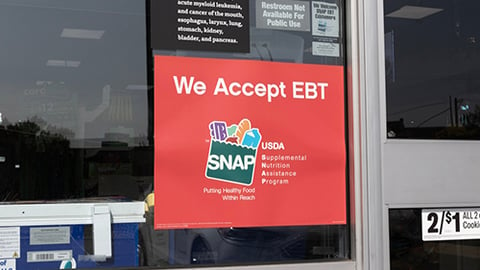States Sue Trump Administration Over Privacy Concerns Related to New SNAP Demands
California Attorney General Rob Bonta, leading a coalition of 21 attorneys general with New York Attorney General Letitia James, has filed a lawsuit in the U.S. District Court for the Northern District of California that challenges the U.S. Department of Agriculture’s (USDA) demand that states turn over detailed, personal information about millions of Supplemental Nutrition Assistance Program (SNAP) recipients. The coalition argues that this demand violates multiple federal privacy laws and the U.S. Constitution.
SNAP is a federally funded, state-administered program that provides billions of dollars in food assistance to low-income families across the country, ensuring they can purchase groceries for themselves and their family members. SNAP applicants provide their private information on the understanding, backed by long-standing state and federal laws, that their information will not be used for unrelated purposes.
[RELATED: SNAP Key to Bolstering Retail Food Resilience in Low-Income Areas]
The USDA, which administers SNAP, made a demand in May that states turn over personal information on all SNAP applicants and recipients, including social security numbers and home addresses, dating back five years. As reported by NPR, the agency recently broadened the scope of information it is collecting to include other data points, including immigration status and information about household members.
The federal government’s stated justifications for its data demands was to “prevent fraud and abuse.”
However, the lawsuit argues that these demands violate multiple federal privacy laws; fail to meet the public comment requirements for this type of action; exceed USDA’s statutory authority; and violate the Spending Clause.
The USDA has threatened states with potential SNAP funding cuts if they refuse to comply with its demands. States argue that they have been put in the impossible position of either complying and violating the law, or protecting their residents’ personal information while jeopardizing funding used to administer the SNAP program.
“This unprecedented demand that states turn over SNAP data violates all kinds of state and federal privacy laws and further breaks the trust between the federal government and the people it serves," said Attorney General Bonta. "The President doesn’t get to change the rules in the middle of the game, no matter how much he may want to.”
[RELATED: Independent Grocers Head Industry Fight Against Proposed SNAP Cuts]
In the 60 years states have administered SNAP, the federal government and state agencies have worked together to build a process for ensuring that only eligible individuals receive benefits. The USDA has described SNAP as having “one of the most rigorous quality control systems in the federal government.” The lawsuit points out that those systems have never required that states turn over sensitive, personally identifying information about millions of Americans without any meaningful restrictions on how that information is used or shared with other agencies.
The coalition is seeking a court judgment declaring that the administration cannot disclose the requested SNAP data to the Department of Government Efficiency (DOGE) or the Department of Homeland Security (DHS) for any purposes other than SNAP administration. The group asks the court to declare the administration’s new policy illegal and prevent enforcement.
Attorneys General Bonta and James lead the attorneys general of Arizona, Colorado, Connecticut, the District of Columbia, Delaware, Hawaii, Illinois, Maine, Maryland, Massachusetts, Michigan, Minnesota, Nevada, New Jersey, New Mexico, Oregon, Rhode Island, Washington, and Wisconsin, as well as the state of Kentucky, in filing the lawsuit.






